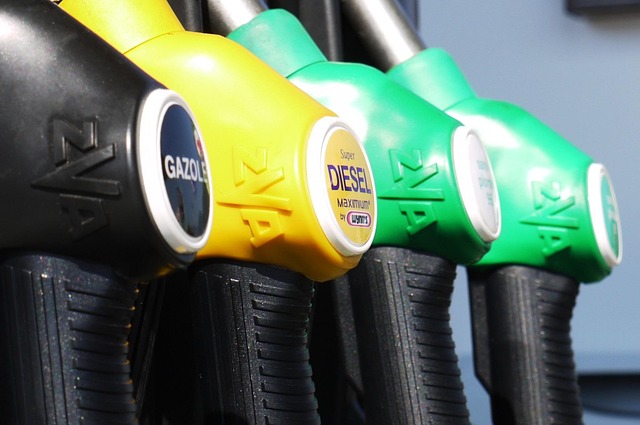When buying a Select Gasoline Vehicle, understand warranty options: basic vs. extended coverage. Evaluate vehicle quality, reputation, and expected maintenance costs. Choose between manufacturer-backed or third-party warranties, considering age, mileage, and specific green features. Tailor your selection based on duration, cost, perks like roadside assistance, and align with vehicle characteristics for peace of mind.
When considering a new or used select gasoline vehicle, understanding warranty options is crucial. This guide breaks down everything you need to know about gasoline vehicle warranties, from types of coverage to common exclusions. Learn about manufacturer vs. third-party plans and factors influencing your choice. Discover how to select the right warranty plan tailored to your car’s needs, ensuring peace of mind on the road.
- Understanding Gasoline Vehicle Warranties
- Types of Coverage Available
- Factors Affecting Warranty Choices
- Manufacturer vs. Third-Party Options
- Common Exclusions and Considerations
- Choosing the Right Plan for Your Car
Understanding Gasoline Vehicle Warranties

Understanding Gasoline Vehicle Warranties
When considering a new or used select gasoline vehicles, understanding the warranty options is crucial. A vehicle warranty, specifically designed for reputable gasoline car brands, offers protection against unexpected repairs and maintenance costs. These warranties can vary in terms of coverage, duration, and exclusions, ensuring consumers get the best value for their investment in high performance gas engines or efficient and powerful gas cars.
Manufacturers typically offer two types: basic warranty covering major components and extended warranty providing broader protection. Basic warranties usually last a few years, while extended warranties can extend coverage for up to 10 years or more. By understanding these options, car buyers can make informed decisions and choose the right select gasoline vehicles that align with their needs and budget.
Types of Coverage Available

When considering a warranty for your gasoline vehicle, several options cater to diverse needs. For those who prioritize fuel efficiency and greenhouse gas reduction, hybrid electric vehicles often come with extensive manufacturer warranties, covering both the conventional engine and advanced electric components. These warranties can extend for up to 10 years or 100,000 miles, providing peace of mind during your transition to a more eco-friendly driving experience.
For traditional gasoline-powered cars, warranties typically focus on engine, drivetrain, and sometimes, comprehensive coverage. Select best gasoline cars for fuel efficiency may offer extended warranties as an option, especially from manufacturers committed to sustainability. These warranties can protect against unexpected repair costs, ensuring your investment in a green vehicle remains reliable and cost-effective over time.
Factors Affecting Warranty Choices

When selecting a gasoline vehicle, several factors influence your warranty choices. One key consideration is the overall quality and reliability of the car. Opting for a vehicle with a solid reputation for durability from reputable manufacturers can provide peace of mind and potentially reduce the need for frequent repairs, thereby saving you money in the long run. The age and mileage of the vehicle also play significant roles; newer models often come with more extensive warranties due to advancements in modern gasoline vehicle innovations.
Moreover, the cost of maintenance and repair services varies across different brands and models. Higher-end vehicles might offer longer warranty periods but can be more expensive for repairs compared to budget-friendly options. It’s essential to weigh these factors when considering a top performing gas engine or exploring gasoline cars under 20k. Ensure that any warranty you select aligns with your vehicle’s performance, your budget, and your expectations regarding maintenance costs.
Manufacturer vs. Third-Party Options

When considering a warranty for your Select Gasoline Vehicle, one key decision is whether to go with manufacturer-backed coverage or opt for a third-party option. Manufacturer warranties typically cover all aspects of your vehicle, including high performance gas engines and advanced safety features, for a specified period after purchase. This can provide peace of mind, especially with low emissions gasoline vehicles, as you’re covered for any defects that might arise.
Third-party warranty providers offer specialized plans tailored to different vehicle types and needs. While they may not cover every component like manufacturer warranties, they often include broader coverage for wear and tear, offering more flexibility. For those seeking specific coverage for certain parts or additional benefits, third-party options can be a great fit.
Common Exclusions and Considerations

When looking at gasoline vehicle warranty options, it’s crucial to understand common exclusions and considerations. Many warranties typically exclude high mileage gasoline SUVs and fuel-saving models, focusing more on new or low-mileage vehicles. This is because older cars, especially those with higher mileage, are prone to more mechanical issues.
Additionally, some warranties may not cover parts directly related to greenhouse gas emissions reduction, such as electric motors or hybrid components. Always review the fine print to ensure the warranty aligns with your needs, considering factors like vehicle age, mileage, and specific fuel efficiency or environmental features you value, like those found in modern green cars.
Choosing the Right Plan for Your Car

When selecting a gasoline vehicle warranty plan, it’s crucial to consider your specific needs and driving habits. Different plans cater to various aspects like coverage duration, repair costs, and additional benefits such as roadside assistance or rental car coverage. For instance, if you own a fuel-optimized gasoline vehicle known for its efficiency, a comprehensive warranty might be less necessary, but one that covers engine components specifically could offer peace of mind.
Keep in mind that some manufacturers offer extended warranties on gasoline cars with excellent safety ratings and advanced safety features. Evaluating these options based on your budget and the likelihood of needing repairs within the coverage period will ensure you choose the best plan for your car.
When selecting a gasoline vehicle, understanding your warranty options is crucial. By familiarizing yourself with different types of coverage, factors influencing choices, and considering manufacturer versus third-party plans, you can make an informed decision that best suits your car’s needs. Remember, the right warranty plan provides peace of mind and financial protection against unexpected repairs. So, whether you’re buying new or used, take the time to choose the ideal warranty for your chosen gasoline vehicle.
